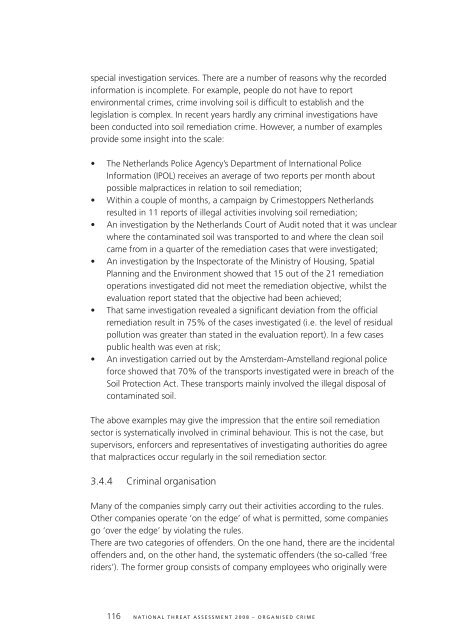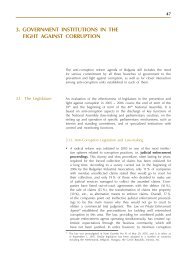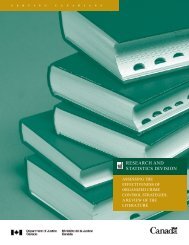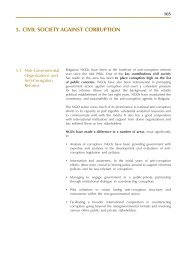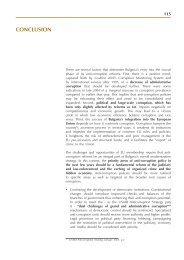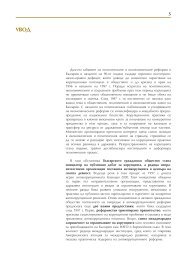National Threat Assessment 2008. Organised Crime - Politie
National Threat Assessment 2008. Organised Crime - Politie
National Threat Assessment 2008. Organised Crime - Politie
Create successful ePaper yourself
Turn your PDF publications into a flip-book with our unique Google optimized e-Paper software.
special investigation services. There are a number of reasons why the recorded<br />
information is incomplete. For example, people do not have to report<br />
environmental crimes, crime involving soil is difficult to establish and the<br />
legislation is complex. In recent years hardly any criminal investigations have<br />
been conducted into soil remediation crime. However, a number of examples<br />
provide some insight into the scale:<br />
• The Netherlands Police Agency’s Department of International Police<br />
Information (IPOL) receives an average of two reports per month about<br />
possible malpractices in relation to soil remediation;<br />
• Within a couple of months, a campaign by <strong>Crime</strong>stoppers Netherlands<br />
resulted in 11 reports of illegal activities involving soil remediation;<br />
• An investigation by the Netherlands Court of Audit noted that it was unclear<br />
where the contaminated soil was transported to and where the clean soil<br />
came from in a quarter of the remediation cases that were investigated;<br />
• An investigation by the Inspectorate of the Ministry of Housing, Spatial<br />
Planning and the Environment showed that 15 out of the 21 remediation<br />
operations investigated did not meet the remediation objective, whilst the<br />
evaluation report stated that the objective had been achieved;<br />
• That same investigation revealed a significant deviation from the official<br />
remediation result in 75% of the cases investigated (i.e. the level of residual<br />
pollution was greater than stated in the evaluation report). In a few cases<br />
public health was even at risk;<br />
• An investigation carried out by the Amsterdam-Amstelland regional police<br />
force showed that 70% of the transports investigated were in breach of the<br />
Soil Protection Act. These transports mainly involved the illegal disposal of<br />
contaminated soil.<br />
The above examples may give the impression that the entire soil remediation<br />
sector is systematically involved in criminal behaviour. This is not the case, but<br />
supervisors, enforcers and representatives of investigating authorities do agree<br />
that malpractices occur regularly in the soil remediation sector.<br />
3.4.4 Criminal organisation<br />
Many of the companies simply carry out their activities according to the rules.<br />
Other companies operate ‘on the edge’ of what is permitted, some companies<br />
go ‘over the edge’ by violating the rules.<br />
There are two categories of offenders. On the one hand, there are the incidental<br />
offenders and, on the other hand, the systematic offenders (the so-called ‘free<br />
riders’). The former group consists of company employees who originally were<br />
116 <strong>National</strong> <strong>Threat</strong> <strong>Assessment</strong> 2008 – <strong>Organised</strong> crime


